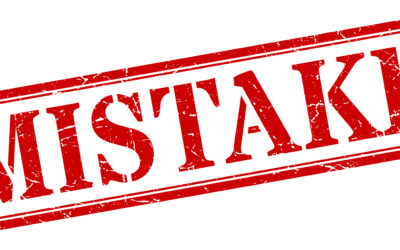Over the years, I witnessed a few families that experienced a loved one’s death and had to go through the “probate” process. A couple of decades ago I actually had to go through the probate process. Not only did we go through probate, my dad died without a will – also known as dying “intestate“. That is what I call “probate on steroids”. So, over the years I have become painfully familiar with the process of probate and can say that it can be an absolute nightmare for family members to deal with. It creates a time drain and a huge amount of stress for the heirs of the person that deceased. In some cases, it can lead to family members having disagreements and becoming estranged with one another.
Helping consumers avoid probate is and area that CG Financial Group specializes in, along with our attorney affiliations. There are great tools that enable consumers to avoid probate, as we will discuss.
What is probate?
Probate is the process after somebody dies that a person‘s transfer of assets usually goes through. At a minimum you can figure on 6 to 12 months for the probate process and can last years. The probate process is administered by a court and seeks to ensure the orderly transfer of assets to the heirs that have a right to inherit the property, while at the same time making sure that all of the creditors are paid off from the estate. In short, probate protects the rights of the heirs and also the creditors.
Why does the world need probate?
Imagine a world where when somebody dies, the families were not required to go through a formal process for paying off the decedent’s mortgages, loans, etc. How could banks and mortgage companies get over the fact that when a person dies, they could be left high and dry? Furthermore, what if the distribution of property to each of the family members was not supervised. It would be chaos! You would have cage matches of siblings fighting over property without any legal supervision. The above are reasons that we have the probate process.
Do Wills avoid probate:
NO!!! The process of probate is made a lot easier with a Will (AKA, Last Will and Testament), which is basically a roadmap for the judges and the attorneys to follow as the probate process progresses. Many people believe that a Will avoids probate. This is not true. Wills merely provide a roadmap for the probate process. Additionally, if you have minor children, a Will is where you would also state who should take your children in the case of you and/or spouse were to pass away! Nobody wants a court to determine who will be the guardian of their children, which is what would happen if you died without a Will and no obvious guardian like a spouse, etc.… So, a Will is a good thing, but it is very minimum that one should have as an “Estate Plan”. But don’t expect a Will to avoid the Probate process. As a matter of fact, some definitions of “Probate” would say that Probate is the process of “proving” a Will.
Again, dying without a Will is known as “dying intestate”. Dying intestate also uses the probate process but is made a lot more difficult because there is no roadmap/Will.
Methods of Estate Transfer:
Not all property needs to go through probate when one passes away. Generally, the assets can be transferred in four different ways. And if one has a great estate plan, the top three ways are how their assets pass:
- By Contract: Think of a life insurance policy, annuity, or an IRA which has a named beneficiary or “payable on death”. Probate is generally avoided with these assets because of the beneficiaries/PODs. Note: If “Estate” is listed as the beneficiary, it will go through probate!!!
- Ownership Titling: Think of a piece of property owned “joint with rights of survivorship”, or a piece of property owned by a “revocable trust” that has named beneficiaries. Probate is generally avoided. Note: Revocable Trusts are one of the most powerful tools for avoiding probate!!!
- Rule of law: Some states (nine of them) are “Community Property States” where property acquired during marriage is considered jointly owned by the other spouse. In these states, when one spouse dies, the other spouse gets all of that “Community Property”. Probate is generally avoided.
- Probate!!!
The Probate Process:
For most estates, there is “Estate Planning” that can be done through the use of PODs (Payable on Death, TODs (Transfer on Death), Beneficiary Designations, and Trusts that can completely avoid probate, or make probate a very painless process. But, in the absence of such planning, what does the process look like?
Again, one can plan on a minimum of six months – at least in the state of Iowa – when it comes to dealing with the probate process. Note: For smaller estates, there is a “Simplified Probate Process” that can be quicker.
- Hire an Attorney: In the state of Iowa, the probate process requires the heirs to work with a licensed attorney.
- Open up the “Probate Estate”. This is the process of filing the Will with the district court in the county of residence, at least if there is a Will. At that point in time a petition for probate is filed, and there is an executor that is appointed. The executor of the estate is somebody that was indicated in the Will. If there is no will, then the court will appoint the Executor of the estate. It is the Executor that manages the estate through the probate process, until the end.
- Notice must be sent to all beneficiaries that an executor has been appointed for the process of managing the estate.
- Once the petition for probate is filed with a court, a “Notice of Petition for Probate” will need to be published in the newspaper where the deceased resided. That notice is basically a “calling all creditors!!!”! Come and get your money”. It notifies creditors that if they have a claim to make against the estate, they must do so. In Iowa, they have four months from that point in time to make a claim against the estate.
- The executor must also file an inventory of all of the assets with the court. As I went through a couple of decades ago, understanding what all the assets were, how much they were worth, where the titles were, etc., was a daunting task. Rifling through your loved one’s mail is not a fun thing to do. This can take weeks, or months.
- After all the creditors have been paid off, the property can be distributed to the beneficiaries. This can be easier said than done if there is real estate and automobiles that need to be retitled.
The above does not even include the activities outside of “probate”, like filing final tax returns and paying any estate/inheritance taxes (if applicable). The above also assumes probate in only one state!!! If a deceased had property in other states, probate may need to be opened up in those states as well… This is defined as “Ancillary Probate”.
Much of the above can be avoided by consumers speaking with a financial professional that understands Estate Planning. For instance, virtually every piece of property that my dad owned could have been owned by a “Revocable Trust”. This would have allowed him to keep 100% control of all of his assets but at the same time avoid any of the above probate processes.
What about the cost? In the whole scheme of things, a Revocable Trust can be very cheap. Depending on the amount of assets, the trust can cost anywhere from a few hundred dollars up to a couple thousand dollars. This is actually very cheap considering the cost of PROBATE. In the state of Iowa, probate can range between 2% and 5% of the probate estate!!! The attorneys and judges do not work for free!
At a very minimum, you need a Will!!! In Iowa the Will must be “witnessed” by two competent people and also notarized.
Again, the Will is oftentimes the bare minimum as it does NOT avoid probate. Oftentimes a complete estate plan includes four items: 1. Revocable Trust 2. Pour-Over Will 3. Durable Power of Attorney 4. Advance Directives (regarding care and end of life treatment). These documents are a topic for another article.
We are currently conducting “Estate Planning Webinars and Seminars” for consumers across the country so let us know if you would like an invite.














0 Comments